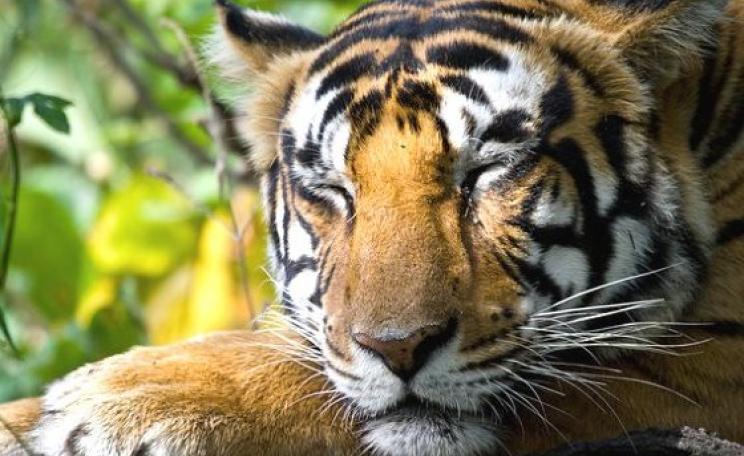-
The indigenous Waorani communities that live along the riverbanks of the Ecuadorian Amazon have been mired in a symbolic legal battle to protect their ancestral lands.
The Waorani territory and people have experienced pressures from development and resource extraction.
The Ecuadorian Provincial Court's decision in favor of the Waorani permanently protects 500,000 acres of the Amazon Jungle. A sense of victory is felt among the Waorani, and a global symbol resonates for other regions experiencing similar pressures from potential resource extraction.
Not for sale
Luis Muños, the co-founder of the restoration group Amisacho, received an invitation to return to a Waorani community, where he had helped install solar panels one year prior. We travelled to Akaro, one of the most remote Waorani communities.
Traveling South, we stayed in Puyo, Ecuador. On this day we saw the Waorani march through the city streets demanding the legal right to their ancestral land, and demonstrating the importance that this land embodies for them.
Among them is Memo, one of the Waorani contacts Luis made in the community of Akaro. Memo is the founder and “grandfather” of Akaro. And on this day in Puyo he was joined by some 200 other Waorani, Cofan, and other Amazonian indigenous people, some with spears in hand.
Their voices were strong and message portrayed in chants and signs reading, “La Selva no se vende!” or “The jungle is not for sale”.
The March ended at the Ecuadorian Provincial Court, where members of the Waorani, accompanied by their lawyer, handed over the official legal documents to sue the Ecuadorian government for leasing the Waorani Territory to foreign oil companies.
Storytelling
The area in jeopardy, some 500,000 acres of jungle, received the bureaucratic name of Block 22.
Memo’s community of Akaro is in Block 22. He came out of his community to join others in sharing their message.
Memo accompanied us as we embarked from Puyo on a three-hour dirt road that ended at the banks of a braiding Amazonian river, Rio Villano, where we began a two day canoe trip to the community of Akaro.
Standing tall, with engine throttle in hand, Memo skillfully navigated the canoe loaded with gear and people around the curves of the low flow river. While making our dinner over fire, Memo told stories of his childhood, of the first time he saw an airplane, a time before he had seen a white person or amenities such as metal pots.
Modern jungle
The next day, some of our party, including myself, walked the second half of the journey through the jungle to Akaro. Memo’s son-in-law, Carlos, accompanied us on a trek into the Waorani territory, harvesting wild cacao and other edible plants along the way.
It was on this hike we were first shown the immense breadth of usable knowledge the Waorani have of plants and animals within the jungle. The traditional techniques that the Waorani use to hunt toucans and other animals is a blow dart gun with poison-tipped arrows. The darts are tipped with poison derived from a lianna that is found throughout this region of the Amazon.
Though as we walk, we are told that traditionally abundant plants, such as the lianna used for the poisoned darts, are becoming more and more difficult to find.
Early the next morning while at Akaro, Memo enters the living area of the main house with a large sajino, or wild pig, on his back. Memo is one of the best hunters in his community, and without our knowing, he had left earlier that same morning to hunt.
Memo enters the largest house at Akaro with the sajino worn like a backpack, with each of the pig’s lifeless legs tied together with vines around his chest. As a much-welcomed arrival of sustenance, this sajinomakes a weighted entrance as Memo heavily drops the animal on the wooden floorboards next to the cooking area.
Decisive message
In the following week, while far beneath the jungle canopy and canoeing atop the coffee-colored river, Memo and his family at Akaro imparted a deluge of knowledge regarding the surrounding flora and fauna.
From the depths of the dense foliage and endlessly weaving rivers, it was difficult to assume that a place as remote could have been in such danger.
On April 27th, 2019, the court verdict came in in favor of the Waorani to permanently protect 500,000 acres of their ancestral lands from resource extraction. However, following this court decision, the Ecuadorian government motioned to appeal and overturn this decision.
As of July 1, the Ecuadorian Provincial Court upheld the decision to maintain protection of the half a million acres of Waorani land.
Fostering solidarity
Leading up to this legal victory Memo and many other Waorani have been very active in voicing just how important it is for them to keep their land from being exploited.
Calmly, yet forcefully, sitting atop the floorboards of the same room he dropped the wild pig a few days prior, Memo explained the importance of his cause - that the land his ancestors lived upon and now he and his grandchildren depend on cannot fall into the hands of oil companies.
On our final night in Akaro before disembarking by canoe the next morning, Memo gave us a message to spread, that the Waorani land is not for sale.
By protecting their land, the Woarani have cultivated a symbol of power and potential for motivated individuals to stand up and arise victorious to the pressures of the behemoth oil industry.
Fostering solidarity, this victory of the Waorani can set a precedent for other areas in jeopardy from extraction such as the neighbouring seven million other acres of the Amazon Basin or the distant Arctic National Wildlife Refuge.
This Author
Eliot Headley, age 25, lives in Lake Tahoe, California. Working as a tour guide there, he enjoys sharing a deepening connection with nature.




